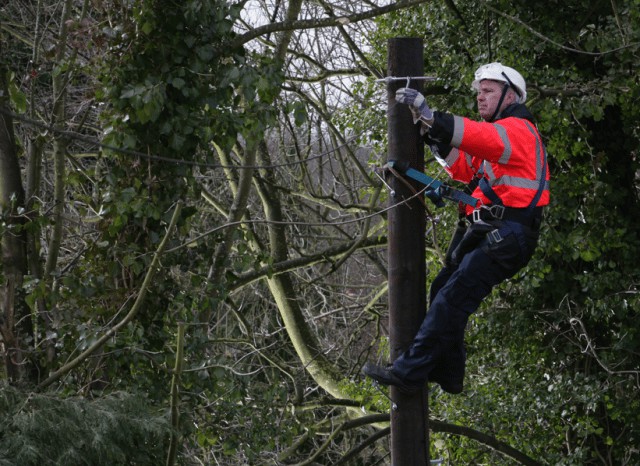
Of all the ideas people have had over the years for plugging the rural broadband divide (WiFi, WiMax, government subsidies), not many people ever came up with electricity masts.
But now Virgin Media (NSDQ: VMED) has signed an agreement with Surf Telecoms, a division of electricity firm Western Power Distribution that enables just that, to take broadband to Crumlin, a village near Pontypool that’s currently unserved by Virgin’s fibre-optic network, which nevertheless traverses the M4 corridor to the south.
Virgin had already trialled the technology in Woolhampton, Berkshire, in March, but this is being rolled out to actual homes. The electricity masts effectively bridge the gap between potential customers’ homes and Virgin’s fibre network. The technology also supports Virgin’s cable TV services.
It’s fair to say this technology could significantly enhance Virgin Media’s addressable market, perhaps matching it to BSkyB’s own. Its recently upgraded DOCSIS 3.0 network is state-of-the-art, supporting perhaps 500Mbps speeds in future, but it’s UK footprint is limited to 51 percent of UK homes (12.6 million) and has already taken significant opex to build out.
But it could also play a significant part in enabling nationwide next-generation access speeds. Even so, Virgin is saying this would require “some focused measures from government”.
Virgin says it already has 270,000 customers using its services over infrastructure other than its own (ie. copperwire ADSL for TV, phone lines other than its own for telephone)